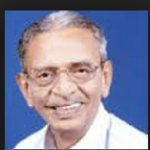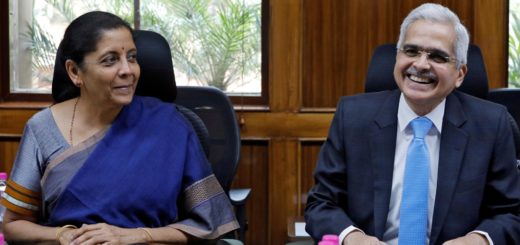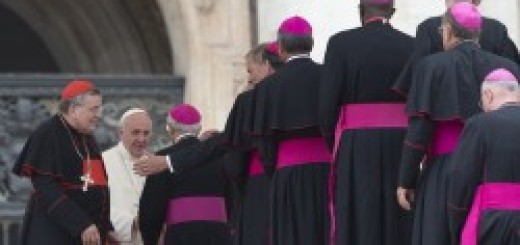Lay Auditors at the Synod: What did they say?

The lay auditors at the synod did say almost everything that should be said. Ed Schreurs one of  the members of the Catholic Church Reform International has forwarded what half a dozen auditors actually said in the Synod with the note: “Read it if you have not seen it elsewhere and thank God.” It is for the readers to make their own conclusion, if the final draft of the Synod still to come out, reflect any of the suggestions made below. james kottoor, editor.
the members of the Catholic Church Reform International has forwarded what half a dozen auditors actually said in the Synod with the note: “Read it if you have not seen it elsewhere and thank God.” It is for the readers to make their own conclusion, if the final draft of the Synod still to come out, reflect any of the suggestions made below. james kottoor, editor.
New Zealand auditor Sharron Cole was one of those voices the bishops heard on Friday. She was not afraid to point out Church failures and as such, it is worth reading her complete intervention. She challenged the Church to stop judging, labelling and rejecting brother and sister Catholics. She also challenged the Church's stance on Humanae Vitae.
Holy Father, excellencies, fellow Catholics,
When Jesus was asked "what is the greatest commandment?", he replied "Love the Lord your God with all your heart and with all your soul and with all your mind. This is the first and greatest commandment. And the second is like it: Love your neighbour as yourself."
Have we as a Church failed to practise this charity? The experience of many lay people has been of being judged, of being labelled as "intrinsically disordered" and of being rejected by their Christian community. There are those who have walked away never to return and the others who are just waiting, hoping to again be fully in communion with the Church. They say that this failure to love enough is the reason. The Catechism says "The fruits of charity are joy, peace, and mercy". Charity demands beneficence, friendship and communion. When we as Church are not merciful and in communion with our own, is this not a failure of the virtue of charity?
The exercise of charity and mercy requires deep insight into the reality of a person's life. That reality is best understood by those who live it. However many lay people believe the Church does not understand the realities of their lives. Lay people are not trusted to make good decisions in conscience and they often feel subjected to exacting rules which take no account of context or of stages of spiritual development.
The Church's vision on conjugal love and responsible parenthood as expressed in Humanae Vitae has great beauty and depth. However its declaration that "sexual intercourse which is deliberately contraceptive [is] so intrinsically wrong provoked massive dissent from the moment the encyclical was promulgated. Many Catholic married couples have made their own decision in conscience about how to exercise responsible parenthood which may mean the use of artificial contraception. For some, this has meant leaving the church. Others remain but often with a sense of unease.
As an ex board member of Natural Family Planning, I know that this method of contraception permitted by Humanae Vitae is an effective method for motivated couples. However for many couples, the method is simply not practicable -they may hold multiple low-wage jobs, have mental health problems, or struggle for diverse reasons. Every family has difficulties which might lead them for a period of time to use artificial contraception in the interests of responsible parenting. Marriage naturally leads to a desire for children which is a biological imperative and a great grace of the sacrament. In my experience, very few couples suppress this desire with its constraints tending to be the couple's resources to cope, not selfishness.
The response of the Church to this unsatisfactory situation has been for better catechesis or to ignore the dissent. This "paralysed status quo" cannot continue. The matter must be discussed afresh because lay people will not be content to leave it to clergy alone. Too many in authority responded to clergy sexual abuse in a way which demonstrated that they lacked the expertise in sexuality and psychology to make good decisions, with the result they became complicit in perpetuating enormous harm, harm done to lay people.
It will take not more catechesis but rather listening with deep empathy to restore the credibility of the Church in matters of sexual ethics. The time is now for this synod to propose that the Church re-examine its teaching on marriage and sexuality, and its understanding of responsible parenthood, in a dialogue of laity and bishops together.
Malta auditor,Sr. Carmen Sammut of Malta also called for significant changes.
When the Instrumentum Laboris speaks of the Church it sometimes refers to the People of God, that is to all of us, and more often refers to the hierarchy. This is not without significance. If the image of Church is the People of God, then we, the laity, would be expected to bring our knowledge to the discernment processes of the Church, in view of decision-making, always in union with the Pope and our Bishops.
This would influence the way dioceses and parishes work. The diocesan budget would include the formation of women, men and youth to be leaders in the Church. On most of the issues raised here in the Synod, such as bio-technology, it would be useful to have teams of clergy and laity (from all walks of life and in their capacity as theologians, biblical scholars, scientists, sociologists, pastoral workers canon lawyers) bring their lived knowledge and scholarship and reflect together in the light of the Gospel. I see this as part of the Mission of the family in the Church.
One area where such interdisciplinary teams made up of couples as well as religious would bring a change is in the formation of ordained ministers.
Another particular area where much discernment is necessary is with respect to responsible parenthood. In our pastoral, health and education ministries we are called to listen to and accompany women who have children and know they do not have the financial and other resources to bring up another child. Natural family planning methods are not always useful for a couple's growth in mutual love nor are they always possible, especially if the husband is not cooperative or regularly absent. My hope is that the Church engages in this discernment with
couples and with scientists, so as to rethink how to put together her very essential teaching of openness to life, the prohibition of abortion and the plight of these couples.I really dream of a Church where each one is called to give his or her part for the construction of the whole.
United States auditors,Sr. Maureen Kelleher made some powerful statements on Friday.
Holy Father, brothers and sisters
At Paragraph 72 we read "The Church must instill in families a sense of we in which no member is forgotten. Everyone ought to be encouraged to develop their skills and accomplish their personal plan of life in service of the Kingdom of God."
I am grateful for the social encyclicals of our church and her advocacy for immigrants and option for the poor. I am grateful for my Catholic education for the nuns who taught me –Franciscans, Ursulines, Sisters of the Sacred Heart of Mary. They challenged me to give a life of service for the building of the Kingdom of God. As a Sister of the Sacred Heart of Mary since 1960 I serve now these past 31 years as a lawyer working for justice and the immigration needs of the migrant farm workers in south rural Florida.
I call on the Church, my family to live up to the challenge to instill in our family the church a sense of WE ..to encourage each person male or female to develop their skills to serve the Kingdom of God. I ask our Church leaders to recognize how many women who feel called to be in service of the Kingdom of God cannot find a place in our Church. Gifted though some may be many cannot bring their talents to the tables of decision making and pastoral planning. They must go elsewhere to be of service in building the Kingdom of God.
In 1974 at the Synod on Evangelization, one of our nuns, Sister Marguerite Marie was one of two nuns appointed from the Union of Superiors General.
Today, 40 years later, we are 3!
I love my law practice with immigrants but find a high percent of my clients are victims of domestic violence sexual abuse, and parents of sexually abused children. I have yet to hear a homily in the wealthy or poor parishes in my area calling men to see their spouse as partner, as equal, and to stop their practices of power, domination, and violence, and to value the innocence of children. I urge this silence to stop. Also I urge that priests receive better pastoral formation to accompany these victims. They need to know an abusive home is no place to raise a child.
I close with a congratulations for all those cardinals inspired by the Holy Spirit who gave us Pope Francis. He is such a gift. Now people of all different faiths and some with no faith who know I am a sister stop me to say I love your pope.
When Cathy and Tony Witzcak, the U.S. couple had a chance to speak they made some solid suggestions for ministry and for priest formation.
1. The Church must offer quality programs, especially engaged and married couples, or it risks being dismissed as irrelevant in today's world.
2. We should not continually separate husband and wife for ministry in the parish, but rather let their sacrament shine by allowing them to work as a team.
3. If a church is meant to be a family of families, then we should encourage our seminarians to be priests in love with their people, not merely priests in charge of a parish. Our faith is based on relationship with God, but it is learned and lived out in relationship with others.
Columbia auditors
Luis and María Angélica Rojas have been married for 23 years and have two children. They're members of the Focolare Movement, a Catholic lay effort. In an interview, they spoke about their convictions and their interventions in the synod hall emphasizing the need for more lay participation and less clericalism.
1. The Church has been very absent in the matter of marriage preparation, accepting young couples that weren't prepared for the challenge.
2. The Church has also recognized that we have to welcome with mercy those who have failed. With mercy and truth. We can't keep them out.
3. The couple emphasized the role of laity. "We're all Church," said María Angélica. "Often, we say that it's the priests, the hierarchy, that is responsible, but we, the laity, are also part of the Church, and together, we're responsible. We can't leave the formation of communities and families solely in their hands," she said.In a meeting in Rome last January for a meeting of movements that focus their pastoral work on the family, "excessive clericalism," was one of the issues discussed."This is a very important step that we feel the synod is welcoming," María Angélica added. "Many bishops are asking, 'How do we do this?' Many are raising their voice, sharing their experience of having welcomed the laity into their parishes."
A view of the process at the Synod
Last Wednesday, Sr. Maureen Kelleher, one of the women religious chosen to participate as an auditor at the synod, described her days in the synod hall.
We work 9:00 am to 12:30 pm and reconvene 4:30 pm to 7:00 pm,6 days a week. In the plenary sessions a participant with voice gives a timed 3-minute presentation with his recommendations. Then the next person is called on; however, there is no discussion between presentations.
The Pope stays through all these sessions and mingles during the coffee break. Some days we work in small groups and I get to speak.
I think the process is working well, and I recommend it for our US Congressional hearings…especially the adherence to 3 minutes.
No votes have been taken yet so it is too early to see the strength of any idea. The Pope has stressed this is not legislative body but a consultative one, and asked us not to give the press our synopsis of the discussions. Certainly the final writing committee will face a daunting job.
















